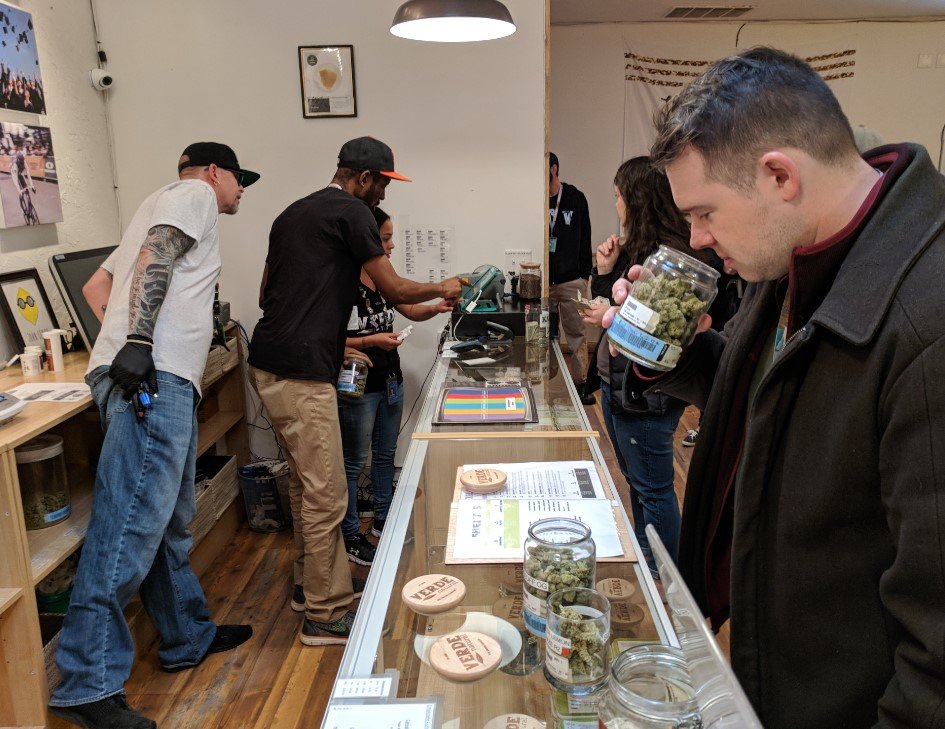In a significant move for the village of Franklin Park, the zoning board has approved a permit request from CW Dispensary 2 LLC, paving the way for the first cannabis dispensary in the area. This decision marks a milestone for the community, which has been navigating the complexities of cannabis legalization and its implications. The approval is expected to bring economic benefits and new opportunities to the village, despite some local opposition.
The decision to approve the dispensary has elicited mixed reactions from the community. At a public hearing, residents voiced their concerns about potential traffic issues and the impact on local businesses. Some residents worry that the increased traffic could disrupt the neighborhood and lead to congestion. Others are concerned about the displacement of existing businesses, such as Lulu Belle’s Pancake House, which currently occupies the proposed dispensary location.

Despite these concerns, there is also a sense of optimism among some community members. They believe that the dispensary could bring much-needed revenue to the village and create job opportunities. The economic benefits of having a local dispensary are seen as a positive step towards revitalizing the area. Proponents argue that the dispensary will attract visitors and boost local commerce, contributing to the overall growth of Franklin Park.
The zoning board’s decision is advisory, and the final approval rests with the Franklin Park Village Board. The board will consider the community’s feedback and the potential benefits before making a final decision. This process ensures that all voices are heard and that the decision reflects the best interests of the village.
Economic Impact and Opportunities
The introduction of a cannabis dispensary in Franklin Park is expected to have a significant economic impact. The dispensary is projected to generate substantial tax revenue for the village, which can be used to fund public services and infrastructure projects. This additional revenue stream is particularly important as municipalities across the country face budget constraints and seek new sources of income.
In addition to tax revenue, the dispensary is likely to create job opportunities for local residents. From retail positions to management roles, the new business will require a diverse workforce. This job creation is seen as a crucial benefit, especially in a time when many communities are grappling with unemployment and economic uncertainty. The presence of a dispensary can also stimulate growth in related industries, such as security, marketing, and real estate.
Moreover, the dispensary’s location in a currently underutilized property presents an opportunity for revitalization. Transforming the space into a modern, regulated cannabis dispensary can enhance the area’s appeal and attract further investment. This development aligns with broader efforts to rejuvenate Franklin Park and make it a more vibrant and economically resilient community.
Regulatory and Legal Considerations
The approval process for the dispensary involves navigating a complex web of regulatory and legal considerations. The zoning board’s role is to ensure that the proposed dispensary complies with local zoning laws and regulations. This includes evaluating the suitability of the location, the potential impact on the community, and adherence to safety and security standards.
Cannabis dispensaries are subject to stringent regulations to ensure they operate safely and responsibly. These regulations cover various aspects, including security measures, product quality control, and age verification procedures. The goal is to create a safe environment for consumers while minimizing any negative impact on the community. The dispensary must also comply with state laws governing the sale and distribution of cannabis products.
The final decision by the Franklin Park Village Board will take into account the zoning board’s recommendations, community feedback, and legal requirements. This thorough review process is designed to balance the benefits of introducing a cannabis dispensary with the need to protect the community’s interests. If approved, the dispensary will be closely monitored to ensure it operates in compliance with all regulations and contributes positively to the village.
Michael Brown is a seasoned journalist with a knack for uncovering compelling stories within the realm of cannabis. Through his investigative reporting and in-depth analysis, he sheds light on the regulatory challenges, market trends, and societal impacts of the burgeoning cannabis industry. Michael’s commitment to objective journalism and ethical reporting makes him a trusted voice in providing readers with balanced and informative articles about this rapidly evolving landscape.








